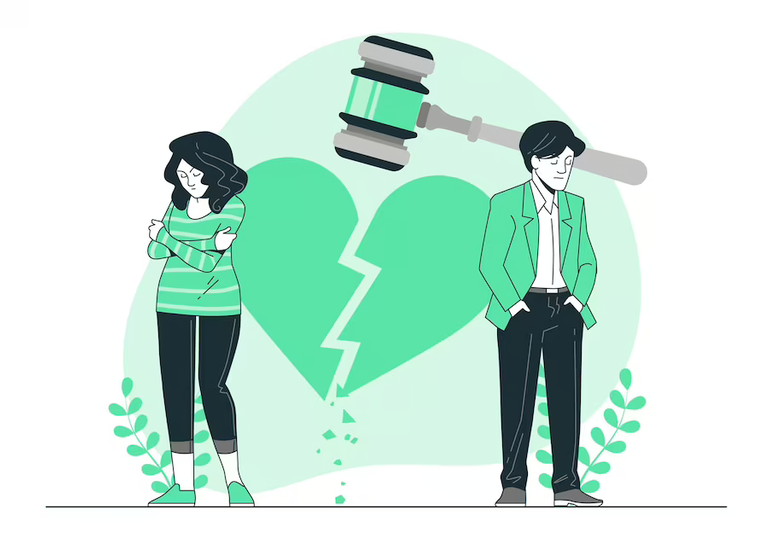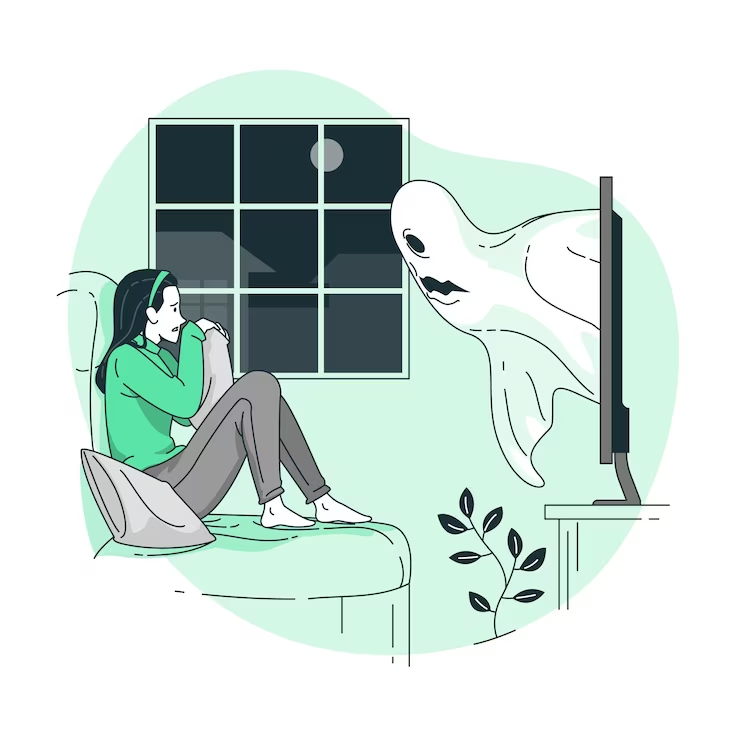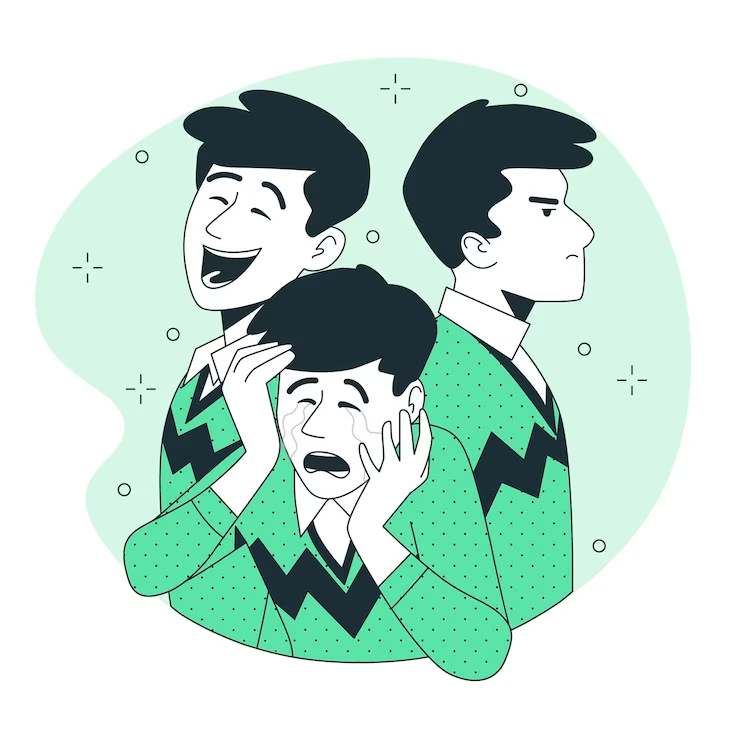Breaking the Cycle of Complex Traumatic Memories: A Psychoanalytic Approach

People illustrations by Storyset
Have you ever had a thought from your past creep up on you from nowhere, and it lingers for a while before it goes? Not just any type of memory, maybe it was one where you talked too harshly, or you were too careless, or you said something you shouldn’t have.
When these memories creep up, what is your response to them? Do you just let them go? Have you been able to stop them from creeping up on you?
Maybe it was a fight with your mom, and you said some things you shouldn’t have said, and she felt hurt. It keeps ringing in your head, but it's hard for you to forget. Maybe the case is that you said something to your friend that you shouldn’t have said, and it caused a crack in your friendship.
You walk away from the situation knowing that things could have been handled a little better, but you don’t know exactly how. Maybe the problem is your friend, but whatever is bringing up this memory doesn’t believe that… it wants you to examine the situation.
You go back to the situation in your head, you retrace your steps, and you find your part in the problem clearly. You make a call and apologize.
This is the simple path towards making peace with the past, but what happens when it is more complex than just what you said or did… what happens when it's what you have been saying and doing?
Heartbreak

People illustrations by Storyset
The whole premise of a heartbreak is not that you were being naive at some point. The situation happens over a long period of time. You have been trusting a figment of your imagination. You were a figment of your imagination, and the place you were might as well have been Pleasure Island.
The situation went on for months and months, maybe even years. You said what you were not supposed to have said to whom you were not supposed to have said it to in a place that never existed.
Now, you are recalling these memories.
These memories are not like the others; they cause you to sweat and feel your heart beating in your chest. You can't think straight because something just triggered one of these memories. These are the signs and symptoms of anxiety. You are having them because you have gone through a traumatic event.
The sense organs (eyes, ears, nose, tongue, and skin) may remind us of those complex events, and we will be stuck in that moment as our prefrontal cortex begins to unwind the process. It is like trying to untie a ball of threads that has formed many knots. Sometimes you cannot see the end.
Fight or Flight

People illustrations by Storyset
Once this pattern starts, it becomes a difficult loop to deal with. Let's imagine that you worked for a boss who lied to you for years that he was going to give you a raise if you worked for less pay in his big corporation. Throughout the time, he manipulated you into thinking he had the best in mind for you, meanwhile, he just wanted cheap labor.
You later find out after a year of working for him that he tries this tactic on most new employees, and most people saw his trick and got out earlier than you did. How naive of you!
Now you are in this new place of work, except you are still thinking about the past. It haunts you. Every negotiation you get into feels like a fight, or you want to avoid it.
There is a small almond in the brain called the amygdala that perceives everything, especially things that can cause us harm, from different parts of the brain and sends its detected threat to the hypothalamus and brainstem to initiate a response.
What is that response? The secretion of cortisol and adrenaline. These are hormones that prepare us to fight the threat or run away from it.
Except in this case, it's too late, and whoever or whatever it is projected towards was not the cause of the initial harm.
The Loop

People illustrations by Storyset
So, if you are not careful or aware of what is going on, you will take out your anger on someone who didn't have any malicious intent or end up avoiding good people.
When this happens, you form a new memory built into that complex one that is hard to heal from, and the cycle continues to hurt you and those around you.
But you can break out of it.
The key is psychoanalytic therapy. This therapy is specifically aimed at gathering insight into unconscious thoughts, emotions, and behavior that contribute to these difficult memories.
You don't wait for the thoughts to be triggered or come up at random. Instead, you conjure them up willingly.
You deal with them before they deal with you. This is how you break out of the loop.
If you are having difficulty with this process, you might need to seek help from a licensed psychotherapist.
Conclusion
In conclusion, difficult memories from the past can have a significant impact on our present and future if left unaddressed. While some memories may be easy to let go of, others can be complex and trigger feelings of anxiety, anger, or avoidance. However, it is possible to break out of the cycle and make peace with the past.
By gaining insight into our unconscious thoughts, emotions, and behaviors, we can address difficult memories before they have a chance to trigger us. Seeking help from a licensed psychotherapist may be necessary for those struggling with this process.
Ultimately, by addressing our difficult memories, we can move forward and live a more peaceful and fulfilling life.

Inkscape.org
A healthy mind is healthy body
Have you ever experienced a memory from the past that keeps coming back to haunt you? How did you deal with it? How do you think our brains process traumatic events, and why do some memories keep coming back to us even years later?
Have you ever been in a situation where you took out your anger on someone who didn't deserve it? How did you feel afterwards, and how did you make things right?
In so many cases, we often take these feelings for granted, seeking help and getting therapy is the solution, but the question I ask once again is, how many of us can afford it?
Yeah. Therapy is expensive and if you are pressed for cash there are alternative if mediation, exercises and self-assessments don't work.
Seeking help from a primary health care physician can help. It's cheaper... online therapy is also getting more available with different packages for those who need them.
Congratulations @ebingo! You have completed the following achievement on the Hive blockchain And have been rewarded with New badge(s)
You can view your badges on your board and compare yourself to others in the Ranking
If you no longer want to receive notifications, reply to this comment with the word
STOPCheck out our last posts:
Support the HiveBuzz project. Vote for our proposal!
Thanks for your contribution to the STEMsocial community. Feel free to join us on discord to get to know the rest of us!
Please consider delegating to the @stemsocial account (85% of the curation rewards are returned).
You may also include @stemsocial as a beneficiary of the rewards of this post to get a stronger support.